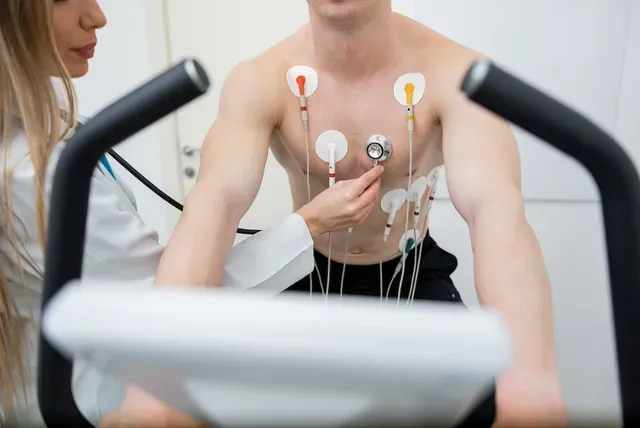Nuclear Stress Test
Board Certified Cardiologist & Vein Specialist located in Houston , Tomball and Cypress, TX

A nuclear stress test shows the movement of blood through the heart, helping diagnose coronary artery disease (CAD). Board-certified cardiologist Yasir Akram, MD, MPH, FACC, FSCAI, and the team at Apex Heart & Vascular Center in Houston, Tomball, and Cypress, Texas, offer nuclear stress testing to diagnose and monitor heart disease. For state-of-the-art cardiovascular care from a highly skilled team, call the office nearest you today or request an appointment online.
What is a nuclear stress test?
A nuclear stress test is an imaging test that tracks how blood moves through the heart before and after exercise. For the test, your cardiologist injects a radioactive material called a tracer into your blood, which is absorbed by the heart and blood vessels.
Apex Heart & Vascular Center uses advanced imaging technology that highlights the tracer, capturing detailed images of your heart.
The imaging is done before and after exercising on a treadmill.
When would I need a nuclear stress test?
The specialists at Apex Heart & Vascular Center may recommend a nuclear stress test if results from other diagnostic tests like an echocardiogram indicate you have coronary artery disease, narrowing or blockages in the main arteries in the heart.
The nuclear stress test confirms a diagnosis and provides detailed images to assess the severity of the disease. They may also recommend a nuclear stress test to monitor your heart disease and determine if you need angioplasty and stenting to open the blood vessels.
The nuclear stress test also evaluates how well your heart pumps, diagnosing other heart diseases like congestive heart failure or acute coronary syndrome, a sudden stop or severe reduction in blood flow to the heart.
What happens during a nuclear stress test?
A nuclear stress test is more involved than other cardiovascular diagnostic tests and can take up to four hours. The team at Apex Heart & Vascular Center reviews the details of your test so you know what to expect.
They first insert an intravenous (IV) line in your arm and administer the tracer. Then, they attach electrodes to your chest, arms, and legs that connect to an electrocardiogram (EKG) to measure the electrical activity of your heart. They also place a blood pressure cuff on your arm.
You lie back on the imaging table for pictures. You then start the exercise treadmill test, slowly increasing the intensity of the workout until you hit your target heart rate or have chest pain or shortness of breath.
The technician injects more tracer into your bloodstream and takes another set of images of your heart.
Is a nuclear stress test safe?
A nuclear stress test is safe. Exposure to large or repeated doses of radiation increases the risk of cancer. However, the amount of radiation from a nuclear stress test is minimal and the benefits outweigh any potential risks.
Call Apex Heart & Vascular Center today or click the online booking button to find out more about diagnostic testing for heart disease.
